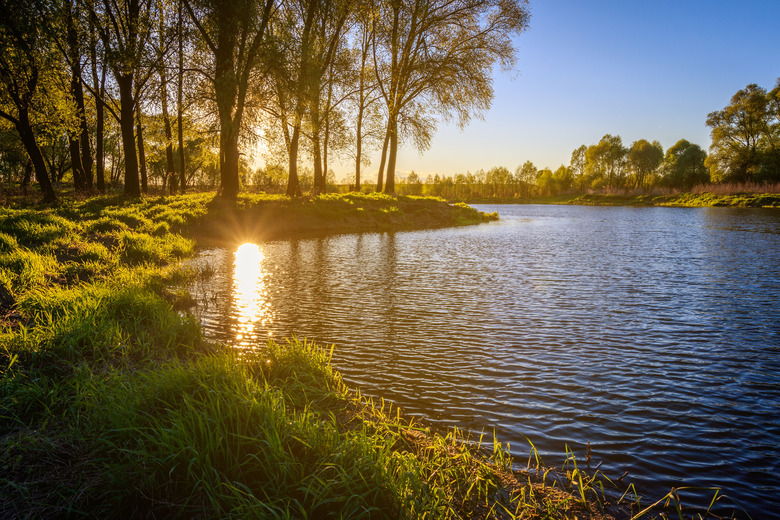Scientists Just Made A Surprising New Discovery About Where Life Began (Hint: It's Not The Ocean)
A new MIT study revealed earlier this month that the first life on Earth may have come from ponds, rather than oceans, as scientists previously thought.
If the origin of life required fixed nitrogen, which many scientists believe it did, then it's unlikely to have arisen in oceans, as stated by lead study author Sukrit Ranjan in MIT News. Shallow bodies of water (as shallow as 10 centimeters deep), on the other hand, would have provided a much more suitable environment.
Nitrogen and Primitive Life
Nitrogen and Primitive Life
There are two big theories out there hypothesizing how nitrogen might have started life on Earth. The first says that nitrogenous oxides may have reacted with carbon dioxide bubbling from hydrothermal vents in the deep ocean to form the first molecular building blocks for life.
The second theory says that a primitive form of RNA, or ribonucleic acid, came in contact with nitrogenous oxides to chemically induce the first life molecules. This process may have taken place in the deep ocean, or it could have happened in shallow ponds. For either theory, scientists believe lightning in the early atmosphere may have produced enough nitrogenous oxides to kickstart life in bodies of water.
Ponds Over Oceans
Ponds Over Oceans
The recent MIT study, published April 12 in a geochemistry, geophysics and geosystems scientific journal, suggests that it would have been difficult for nitrogenous oxides to accumulate in expansive oceans. In ponds, however, this accumulation would have occurred more easily, making shallow bodies of water the more likely source of primitive life.
Ranjan identified two primary reasons why nitrogenous oxides might have had trouble building up in oceans: ultraviolet light and dissolved iron. Both of these could have destroyed a large portion of the ocean's nitrogenous oxides and sent the compounds back into the atmosphere as a gas.
"We showed that if you include these two new sinks that people hadn't thought about before, that suppresses the concentrations of nitrogenous oxides in the ocean by a factor of 1,000, relative to what people calculated before," Ranjan told MIT News.
Because nitrogenous oxides would have accumulated in higher concentrations in ponds than in oceans, dissolved iron and ultraviolet light may have had less impact on them in those environments, as reported by Laboratory Equipment magazine.
An Unresolved Debate
An Unresolved Debate
Scientists have estimated than before life began on Earth around 3.9 billion years ago, our planet may have hosted only about 500 square kilometers of shallow ponds and lakes in total.
"That's utterly tiny, compared to the amount of lake area we have today," Ranjan said in MIT News. "However, relative to the amount of surface area prebiotic chemists postulate is required to get life started, it's quite adequate."
Ranjan's work represents just one important step in the journey of pinpointing where and how life on Earth began, and his study won't end the debate over whether the origins of life took place in ponds or in oceans. It does, however, provide a convincing piece of evidence.
Cite This Article
MLA
Swanston, Brenna. "Scientists Just Made A Surprising New Discovery About Where Life Began (Hint: It's Not The Ocean)" sciencing.com, https://www.sciencing.com/scientists-just-made-a-surprising-new-discovery-about-where-life-began-hint-its-not-the-ocean-13718404/. 25 April 2019.
APA
Swanston, Brenna. (2019, April 25). Scientists Just Made A Surprising New Discovery About Where Life Began (Hint: It's Not The Ocean). sciencing.com. Retrieved from https://www.sciencing.com/scientists-just-made-a-surprising-new-discovery-about-where-life-began-hint-its-not-the-ocean-13718404/
Chicago
Swanston, Brenna. Scientists Just Made A Surprising New Discovery About Where Life Began (Hint: It's Not The Ocean) last modified March 24, 2022. https://www.sciencing.com/scientists-just-made-a-surprising-new-discovery-about-where-life-began-hint-its-not-the-ocean-13718404/
